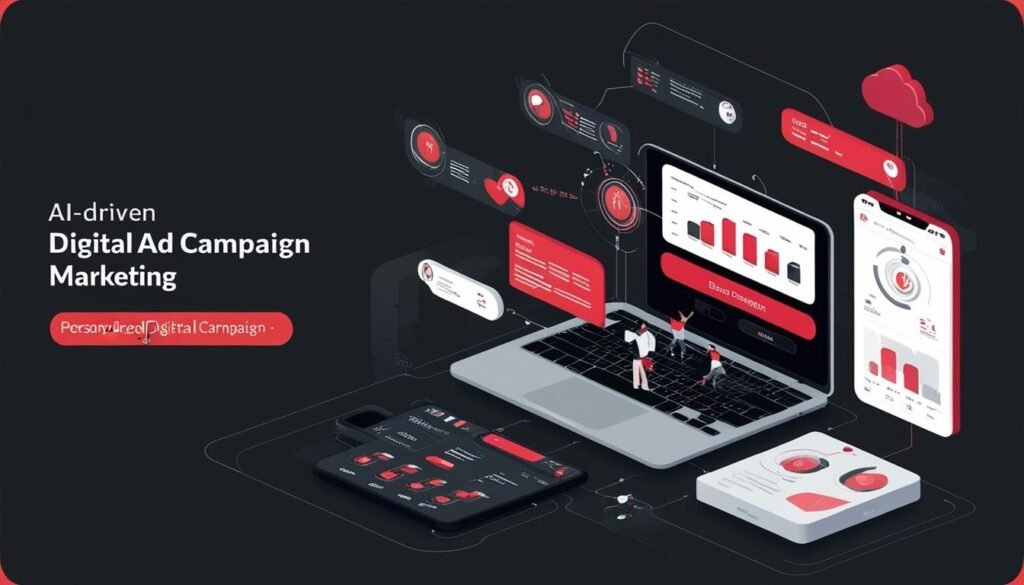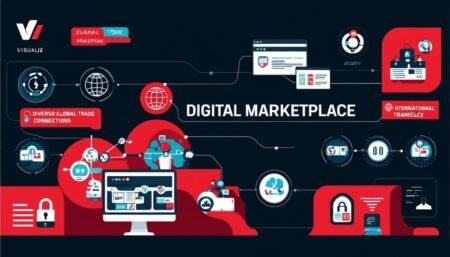Advancements in artificial intelligence are reshaping the marketing landscape, driving brands to adopt smarter, personalised strategies to engage consumers effectively.
The marketing industry is experiencing a significant transformation driven by advancements in artificial intelligence (AI). The current landscape demands smarter and more efficient strategies to navigate the complexities of digital content, media planning, and fragmented customer journeys. As Simrat Sawhney, Vice President of Sales and Client Growth for Asia at Epsilon, highlighted in her talk at DMA Singapore, brands are urged to embrace AI-driven marketing initiatives, particularly focusing on personalised media strategies.
Key trends have emerged that highlight the fusion of AI technologies with marketing practices.
One notable trend is the integration of predictive AI with generative AI, which is redefining precision targeting. Gone are the days when marketers relied solely on demographic information to reach audiences. Today’s strategies demand a deeper understanding of consumer behaviour, intent, and emotion. Predictive algorithms can now infer a customer’s likely actions based on their past behaviours and interactions, enabling marketers to send tailored messages that cater to the specific needs of customers throughout the buying process.
Moreover, dynamic creatives have become essential, with the expectation that advertisements resonate with individual consumers on a personal level. AI empowers marketers to customise every aspect of their promotional content—be it text, images, or videos—based on a variety of factors including past purchases and browsing behaviours. This level of personalisation not only enhances the customer experience but also aids in fostering loyalty and boosting conversion rates.
Real-time decision making is another significant benefit of integrating AI into marketing strategies. AI allows for immediate adjustments to be made during campaigns, providing a substantial advantage over traditional media planning, which operates on a post-campaign analysis basis. Marketers can swiftly change creatives, reallocate budgets, or target different audience segments based on live data insights, optimising campaign effectiveness continuously.
The issue of measuring marketing efficacy has also been addressed with the introduction of AI-powered measurement tools. Marketers often struggle to assess the true impact of their initiatives, as superficial metrics like clicks and impressions do not provide a comprehensive picture. AI tools are now able to integrate both online and offline data to deliver a holistic overview of campaign performance, measuring key business outcomes such as sales, ROI, and customer lifetime value. Epsilon employs these methodologies by tracking various metrics, including the complete path-to-purchase and product affinities, which enables actionable insights to enhance strategy optimisation.
In conclusion, as Simrat Sawhney points out, the time to harness the potential of AI in marketing is now. The synergy between predictive analytics and generative AI offers unmatched opportunities for marketers to create impactful media strategies that engage audiences effectively while driving measurable business outcomes. The shift towards more personalised and data-driven marketing approaches is not just an anticipated future tactic but a current reality being embraced by businesses eager to deepen customer relationships and maximise their marketing investments.
Source: Noah Wire Services
- https://blog.hubspot.com/marketing/hubspot-blog-marketing-industry-trends-report?hubs_content=blog.hubspot.com%2Fmarketing%2Fbenefits-of-email-marketing&hubs_content-cta=99%2525%2520of%2520consumers%2520check%2520their%2520email%2520every%2520day%2520and%2520it%2520is%2520by%2520far%2520the%2520preferred%2520way%2520to%2520receive%2520updates%2520from%2520brands – This link supports the trend of AI driving marketing industry growth and the importance of personalized marketing strategies, highlighting AI’s role in navigating evolving consumer expectations.
- https://www.marketingaiinstitute.com/blog/ai-based-marketing-personalization – This link explains how AI and machine learning enable personalized marketing messages, including emails and messages tailored to individual customer preferences and behaviors.
- https://insight7.io/ai-driven-customer-journey-optimization-tips/ – This link details how AI journey optimization personalizes customer interactions, predicts future needs, and enhances customer experiences through hyper-personalization and predictive analytics.
- https://www.logicalposition.com/blog/how-ai-is-augmenting-digital-marketing-content-creation – This link discusses how AI tools are used to create personalized and dynamic content, such as text, images, and videos, based on customer data and behaviors.
- https://blog.hubspot.com/marketing/hubspot-blog-marketing-industry-trends-report?hubs_content=blog.hubspot.com%2Fmarketing%2Fbenefits-of-email-marketing&hubs_content-cta=99%2525%2520of%2520consumers%2520check%2520their%2520email%2520every%2520day%2520and%2520it%2520is%2520by%2520far%2520the%2520preferred%2520way%2520to%2520receive%2520updates%2520from%2520brands – This link supports the use of AI in real-time decision making, allowing marketers to adjust campaigns based on live data insights and optimize campaign effectiveness continuously.
- https://www.marketingaiinstitute.com/blog/ai-based-marketing-personalization – This link highlights the use of predictive algorithms to infer customer actions based on past behaviors and interactions, enabling tailored messages throughout the buying process.
- https://insight7.io/ai-driven-customer-journey-optimization-tips/ – This link explains how AI integrates both online and offline data to provide a holistic overview of campaign performance, measuring key business outcomes like sales, ROI, and customer lifetime value.
- https://www.logicalposition.com/blog/how-ai-is-augmenting-digital-marketing-content-creation – This link discusses the role of AI in creating dynamic creatives that resonate with individual consumers on a personal level, enhancing customer experience and fostering loyalty.
- https://blog.hubspot.com/marketing/hubspot-blog-marketing-industry-trends-report?hubs_content=blog.hubspot.com%2Fmarketing%2Fbenefits-of-email-marketing&hubs_content-cta=99%2525%2520of%2520consumers%2520check%2520their%2520email%2520every%2520day%2520and%2520it%2520is%2520by%2520far%2520the%2520preferred%2520way%2520to%2520receive%2520updates%2520from%2520brands – This link supports the integration of AI in measuring marketing efficacy by providing actionable insights to enhance strategy optimization.
- https://www.marketingaiinstitute.com/blog/ai-based-marketing-personalization – This link explains how AI ensures that messages are sent at the most suitable time for each customer, using automation rules based on historic and real-time data.
- https://insight7.io/ai-driven-customer-journey-optimization-tips/ – This link details how AI chatbots assist in real-time interactions, resolving queries instantly and offering solutions that align with customer needs, enhancing the overall customer experience.
















